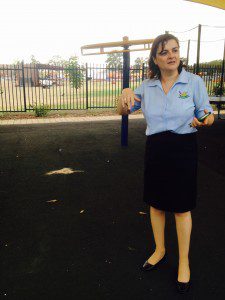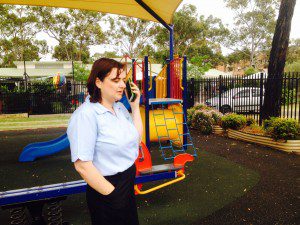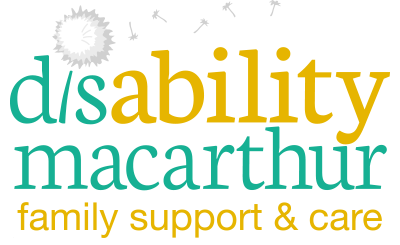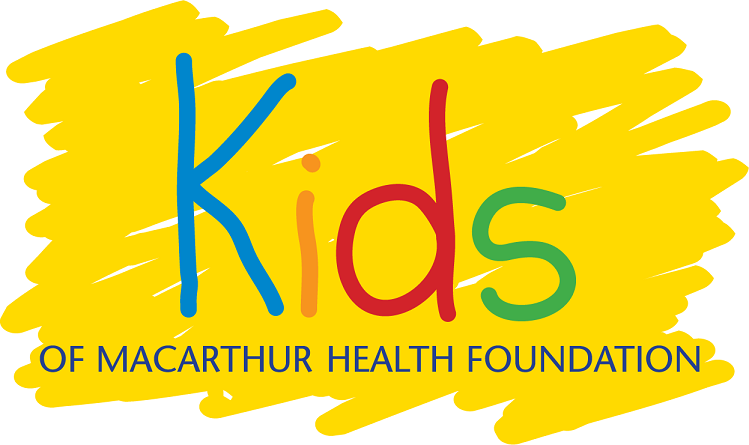![Grace Fava at AASS headquarters in Liverpool: "I wouldn't change a thing about my [autistic] boys. I just want to change the world they live in.''](https://southwestvoice.com.au/wp-content/uploads/grace3-225x300.jpg)
Grace and her Autism Advisory and Support Service (AASS) team are battling against the odds to change the world.
It’s that big a task: they want nothing less than the world to give autistic people a fair go – to treat them as human beings with potential.
Luckily, the autism movement couldn’t have had a better leader carrying the flag for such a noble cause.
Grace Fava is one determined woman: determined to achieve what nobody has before her: sufficient resources across the board, including schools, to ensure autistic kids don’t miss out on education just because their social skills aren’t up to par.
Resources so autistic people can get employment skills which would give them an even chance of regular employment: a fair go in other words, instead of the discrimination upon discrimination heaped on them.
Not to mention the bullying at school, the lack of understanding by educational stakeholders and generally placing autistic people in the ”too hard” basket by most of us.
But don’t worry, Grace Fava is on the case, and she promises never to give up until the war is won.
“Once we own the land we’re on, and we have extended our home here in Memorial Avenue so we can help a lot more autistic kids, and we have a farm where we can teach them job skills, and schools have made provision to teach autistic kids, I may return to a normal life,” Grace says.
In the meantime her star continues to rise, some times because she wins the odd battle and Grace’s recognition factor goes up another notch or two. Which brings in badly needed money for the cause.
A little less than two years ago, she managed to get her Autism Advisory and Support Service (AASS) on the list of beneficiaries for a fundraising gala ball organised by Melbourne identity Mick Gatto. More than $1 million was raised at this extravaganza, which Grace attended along with Fiona Zammit (AASS vice president).
AASS received a cheque for almost $60,000, which went straight into programs and therapies for children with autism.
At around about the same time, the Liverpool City Champion was organising a charity golf day, with all money raised to go to AASS.
As the editor of the paper I was on the organising committee and when Grace told me of her connection to Mr Gatto, I immediately suggested she ask him to join us at the golf day at the New Brighton Golf Course as the guest speaker.
Grace, being Grace, obliged and passed on the invitation. Unfortunately, Mr Gatto informed Grace that he had a prior engagement and so declined our invitation.
 But that’s Grace: everything she has been doing for close to 10 years has been for the cause and while not pushing it away, she does not go out of her way to seek publicity.
But that’s Grace: everything she has been doing for close to 10 years has been for the cause and while not pushing it away, she does not go out of her way to seek publicity.
She is held in high esteem across the region, and on both sides of the political divide.
Chris Hayes, the Federal Member for Fowler and Chief Opposition Whip, is full of praise for Grace:
“I have had the privilege of knowing Grace Fava for the past ten years and during that time I have witnessed her passion, commitment and sheer determination to stand up for families that live with autism. She is an inspiration and is someone who has made a difference in the lives of many. Not only is Grace a friend, but a dedicated and caring member of our community.”
The Mayor of Liverpool, Ned Mannoun, says of her: “Grace is an outstanding woman in our community. Her passion and enthusiasm for the cause of autism is an example to us all on how we can help improve the lives of those who live with autism or their carers. We are truly blessed to have people like Grace devoted to service in our community.”
And Liberal MP, Craig Kelly, the federal member for Hughes, until recently on the board of AASS, is another fan:
“Grace has great compassion and a special insight of the problems of autism; she is a champion for the autism cause and a great advocate for the voiceless.’’
Incredibly, less than ten years ago, Grace Fava was none of these things. Then, Grace was like the rest of us ordinary mortals, a young mother with a husband and couple of toddlers. A family like thousands of others.
And then her eldest, Pasquale, was diagnosed with autism, and her world changed.
“Pasquale developed ‘normally’ for the first 22 months, reaching and in some cases exceeding all of his developmental milestones,” Grace recalls.
“At 12 months, he spoke both Italian and English, sang nursery rhymes with the actions, was a little too social for my liking with strangers, had almost been toilet trained and was very inquisitive.
“At 22 months he lost all language except for about six words in English, started flapping his hands, would no longer respond to his name being called, started smearing poo and was not playing with his toys the way he used to.
“He developed a strange fascination in ceiling fans turning and wheels turning. He loved watching TV credits rolling and his once clear eyes now seemed cloudy.”
Pasquale was assessed and diagnosed with autism and global delay in 2005 at the age of three at Westmead Childrens Hospital.
So how did she cope when told her son was autistic, what were her first reactions?
“After Pasquale was diagnosed, I spent six months in denial,” Grace says.
“I didn’t have the courage to tell my family as there was no one else whose children had a label. The social worker from the hospital would visit and ask how I was coping. I would say great and then change the subject.
“I was given the number to a service provider. They said there was a two year waiting list and would only self-refer. It was not until I met a parent in the hospital waiting room many months later that I found out about other services that I could look into. ”
But the challenges awaiting Grace and her husband Frank, would double hardly a year after little Pasquale’s diagnosis.
Grace tells it like this:
“Gianni, like his older brother, reached all of his developmental milestones and had bright, clear eyes. He regressed at 15 months of age.
“I had Gianni assessed at Westmead Childrens Hospital in 2006 when he was two years old. He was also diagnosed with autism and global delay.”
I don’t suppose any of us really know how much inner strength we have until something comes along to test us.
This was Grace Fava’s test, and the first thing she realised was that that her previous life had prepared her well for the massive challenge of bring up two autistic boys.
Born at Fairfield Hospital, Grace lived at Cabramatta West with her family until she was 12, then moved to Mt Pritchard, where she lived until getting married almost 14 years ago. She attended Harrington Street Public School and Bonnyrigg High School.
After living at Rooty Hill for three years, Grace and the family are now back “home” at Bonnyrigg Heights.
“Growing up I was always interested in medicine, first wanting to be a doctor, then a nurse. In high school I decided upon a career in pathology. This went a little awry when I left year 11,” Grace says.
 Her first job was in pharmacies in Cabramatta and Canley Heights and by the time she decided she needed a change Grace was managing the shop and dispensing medicine.
Her first job was in pharmacies in Cabramatta and Canley Heights and by the time she decided she needed a change Grace was managing the shop and dispensing medicine.
Grace next worked as an administration officer for Wayne Byrnes Rentals Liverpool (whitegoods and electrical appliances).
“While here I became a justice of the peace and learnt about various administration functions,” she says.
After three years with Wayne, Grace dabbled in a some temping and then changed direction yet again by working for Tetra Pak Yennora as their Accounts Receivable Clerk.
“This was an exciting challenge for me and a joy to work at a job that I loved.”
Grace had to leave Tetra Pak after a car accident that left her with pain that she still endures today.
And then autism entered the Fava family in a big way, and Grace quickly became determined to not just help her boys have as normal a life as possible, but all autistic people.
“After experiencing the difficulty in finding services for my boys, I wanted to form an information service from my spare room,” Grace recalls of the first tentative steps for AASS in 2007.
She hadn’t realised how much of a challenge lie ahead of her, not that it would have put her off.
“I contacted the lovely Amanda Bray from Fairfield Council to ask for her advice and guidance. Amanda suggested that I form a committee and an organisation who will auspice the group.
“She gave me the names of a few local not for profit charities who may be able to assist.
“I then contacted Ellie Hirst from Community First Step in Fairfield. She was almost as excited about the project as I was and agreed to auspice and support the group.”
The founding committee comprised solely of parents of children with autism. They were Fiona Zammit, Bassema Ghaznavi, Sandra Violentis, Julie Dahman and Alicia Round.
“ Fiona and Bassema still remain on the board. I will always be grateful to Amanda, Ellie and Mounties, who gave AASS our first $10,000. Without these wonderful people believing in our cause and us, we would not be here today,” Grace says.
Originally, AASS set out to provide assistance to the Liverpool, Fairfield and Bankstown local government areas. Through word of mouth, they quickly expanded to assist families around NSW, Australia and even overseas.
”The AASS board continually set new goals which we (thank God) achieve and surpass,” Grace says.
“Our latest goals are to assist children at risk of relinquishment – children who have severe autism to the point their families can no longer cope with their violent outbursts and their lack of communication; children who have been written off as too hard.
“We also want to generate meaningful employment for young adults with autism in fields where their passions lay. In order to achieve these goals we need money, money that is not likely to come from government due to the rolling back of funding to not for profit organisations.”
Which sounds like the battle is just beginning, but Grace Fava and her band of helpers march on to their own positive tune.
So what is autism, is there a definition everyone and anyone can understand, I ask Grace: “People on the autism spectrum have problems in three areas: social interaction, communicating with others, and behavioural challenges. Autism is referred to as a spectrum because people with autism have varying degrees of disability,” she says.
“Each person with autism is different. They range from those with “classic” or low functioning autism, who may have very little social and/or communication skills, behavioural problems and lower than average IQ, to those with high functioning autism or Asperger’ s syndrome who have difficulty socialising with others and generally suffer from anxiety.
“Most individuals with autism will also have a range of co-morbidities such as developmental delay, Attention Deficit Hyperactivity Disorder (ADHD), Attention Deficit Disorder (ADD), Sensory Processing Disorder, Oppositional Defiance Disorder (ODD), Obsessive Compulsive Disorder (OCD), Tourette’s and other mental health issues.”
Autism can affect anyone, and is not based on ethnic, racial, or social backgrounds. The number of people diagnosed with autism is the same all around the world.
The official statistic for Australia is 1 in 100 children.
Grace says that in South Korea they assessed all children within a certain age range and came up with 1 in 30 children with autism. “Boys are four times more likely to be diagnosed with autism than girls. This could be because girls present differently to boys,” Grace says.
Some traits to look for are:
Delayed, no or little speech
Echolalia: speech consisting of literally repeating something heard
Lack of interaction
Lack of eye contact
Aggressive behaviour due to anxiety and/or frustration
Flapping hands/ this may be accompanied by jumping up and down or spinning
Walking on tiptoes
Extreme dislike of certain sounds or textures. May hold hands over ears
Dislike of being touched/close contact
Extreme dislike of certain foods
Behaviour that is aggressive to others
Lack of interest
Desire to keep objects in a certain physical pattern
Repetitive behaviour
Self-injurious behaviour
Ritualistic behaviour
On the other side of the coin is the fact that some great figures of history were also autistic, people like Albert Einstein, Issac Newton, Thomas Jefferson, Charles Darwin, Michelangelo and Amadeus Mozart, to name just a few.
And yet as a society we have made very little progress in how we treat autistic people, in our schools and in our factories, and, of course socially.
Grace Fava draws inspiration from surprising quarters as she weighs up how the battle is going: “Remember that not long ago it was against the law, it was a criminal act, to have sex with someone of your own gender. Changing this must have seemed impossible back then.
“But gay people campaigned and campaigned and forced society to change its attitudes, so we can do the same with autistic people.
“We will prevail in the end.”
I ask Grace: what are your hopes and aspirations for your boys, Pasquale, 13 and Gianni, 11?
“My aspirations for them are to be happy, independent, self-assured young men who can follow their dreams and work in whatever field they choose.”
And your personal goals, aspirations?
“Personally, I would like to see more awareness, understanding, acceptance, assistance and supports for individuals with autism and their families.
“ At the moment our families suffer in silence with the bare minimum in supports, therapies and respite.
“I see myself taking a back seat at AASS when the dream is fulfilled – the office, respite centre, working farm and therapy centre – all funded so we can minimise the costs to families in need.
“I would like to retire one day and enjoy my family, join a service club, finish my family tree, drink a pina colada and get caught in the rain.”
Enquiries: www.aass.org.au
24 Hour Autism Hotline 1300 222 777.



